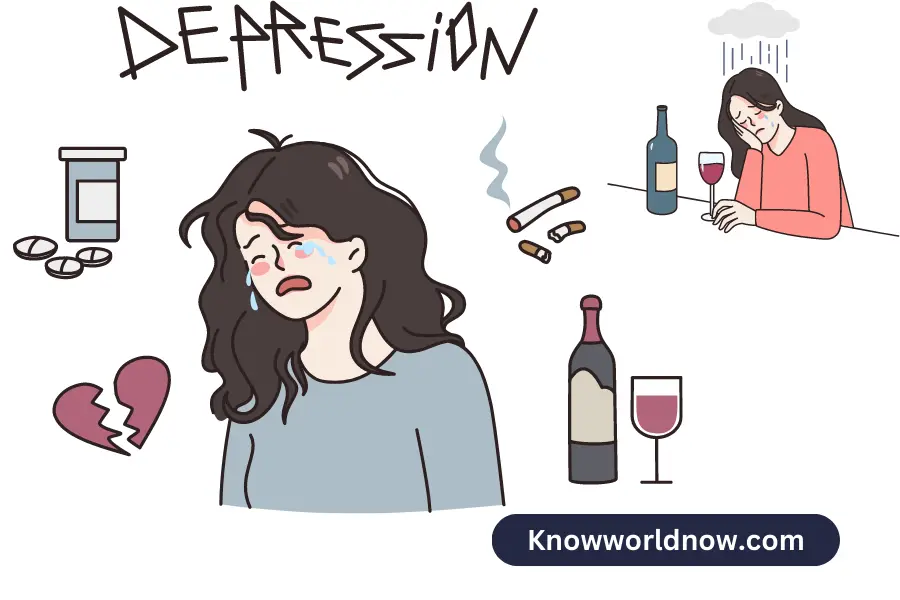In today’s fast-paced world, anxiety has become an increasingly prevalent issue affecting people of all ages. While external factors can contribute to anxiety, it’s important to recognize that our own habits and behaviors can also play a significant role.
In this article, we will explore the mindless habits that cause anxiety and provide practical strategies for breaking free from their grip. By understanding the connection between our habits and anxiety, we can take proactive steps to regain control over our mental well-being and lead a more balanced and fulfilling life.
The Link Between Mindless Habits and Anxiety
Mindless habits are actions that we engage in without conscious thought or intention. They often stem from automatic behaviors, stress, and negative thinking patterns.
These habits can contribute to anxiety by perpetuating a cycle of worry, self-doubt, and a lack of self-care. By recognizing the link between mindless habits and anxiety, we can begin to address the root causes and work towards breaking free.
The Mindless Habits: Hidden Triggers of Anxiety
The key to managing anxiety lies in understanding its root causes. Let’s take a closer look at the every day, mindless habits that can feed anxiety.
Excessive Worrying
Worrying is a natural human response to uncertainty. However, excessive worrying about everyday problems is one of the most common mindless habits that cause anxiety. When worry becomes your constant companion, it can keep your mind stuck in a loop of what-ifs, catastrophizing even the most trivial matters.
Negative Self-Talk
Our inner dialogue has immense power, and negative self-talk is a mindless habit that can heavily contribute to anxiety. Constantly berating yourself, believing that you’re not good enough or that failure is inevitable, undermines your confidence, erodes your resilience, and intensifies feelings of anxiety.
Procrastination
This habit of putting off tasks until the last minute not only leads to increased stress but also perpetuates anxiety. The mounting pressure of impending deadlines and unfinished obligations only amplifies the sense of unease.
Social Media Overuse
Living in a digital era, we’re more connected than ever before. But spending too much time on social media can be one of the mindless habits that cause anxiety. The constant barrage of highlight reels can lead to feelings of inadequacy and social anxiety.
Lack of Physical Activity
Physical activity is a natural anxiety reliever. However, a sedentary lifestyle devoid of regular exercise can escalate feelings of anxiety. Lack of movement can lead to increased tension and stress, amplifying anxiety levels.
Inadequate Sleep
The relationship between sleep and anxiety is complex and intertwined. Anxiety can disrupt sleep patterns, and conversely, insufficient sleep can exacerbate anxiety symptoms. Consistently skimping on quality sleep deprives your body and mind of the rejuvenation they need, intensifying feelings of anxiety and making it more challenging to manage stress effectively.
Strategies for Breaking Free: Overcoming Mindless Habits
Now that we’ve identified the mindless habits that cause anxiety, it’s time to learn how to break free. Here are some strategies that can help you navigate through the anxiety labyrinth.
Mindfulness and Meditation
Mindfulness and meditation are powerful tools for combating anxiety. By focusing on the present moment, you can interrupt the cycle of mindless worrying and negative self-talk. Regular practice can help you become more aware of your habitual thought patterns and develop healthier responses to stress.
Cognitive Behavioral Therapy (CBT)
CBT is a type of psychotherapy that can help you understand the relationship between your thoughts, behaviors, and feelings. It can assist in challenging negative thought patterns and developing coping strategies for anxiety.
Regular Physical Activity
Regular exercise is a natural anxiety-buster. It releases endorphins, the body’s natural mood lifters, helping reduce stress and improve mood. Incorporating physical activity into your routine can help alleviate anxiety symptoms and promote better mental health.
Healthy Sleep Habits
Practicing good sleep hygiene can help improve sleep quality and reduce anxiety. This includes maintaining a consistent sleep schedule, creating a relaxing bedtime routine, and optimizing your sleep environment.
Limiting Social Media Use
Limiting your time on social media can help reduce anxiety. Instead of mindlessly scrolling, designate specific times for social media and focus on creating more real-world connections.
Seeking Professional Help
If your anxiety feels overwhelming or is interfering with your daily life, it may be time to seek professional help. Therapists, psychologists, and psychiatrists can provide tools and treatment plans to manage anxiety effectively.
In conclusion, anxiety can be a formidable opponent, especially when fed by mindless habits. By becoming aware of these habits and implementing strategies to counteract them, you can break free from the anxiety cycle and reclaim your peace of mind. It’s a journey that requires patience and perseverance, but with each small step, you’re moving towards a healthier and happier life.
Remember, it’s okay to seek help and it’s okay to prioritize your mental health. In the words of Lao Tzu, “A journey of a thousand miles begins with a single step.” So, start with the first step in breaking free from the mindless habits that cause anxiety, and embark on your journey to mental well-being.
Creating and Sustaining Healthy Habits
Creating lasting change requires setting clear goals, tracking your progress, and celebrating your successes along the way. Practice patience and resilience as you work towards breaking free from mindless habits. If needed, seek professional guidance and support to ensure you have the tools and resources necessary for success.
Conclusion
Breaking free from mindless habits that cause anxiety is a transformative journey that requires self-awareness, commitment, and the implementation of practical strategies.
By understanding the link between these habits and anxiety, and by adopting strategies such as mindfulness, establishing healthy boundaries, challenging perfectionism, practicing stress management, and seeking support, you can regain control over your mental well-being.
Remember, change takes time and effort, so be patient and compassionate with yourself throughout the process. With determination and the right strategies, you can pave the way to a more peaceful and anxiety-free life.







